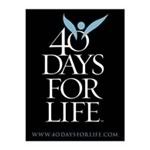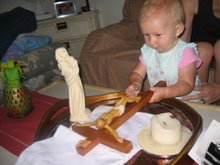Yesterday we had a fun-filled afternoon. We travelled to downtown Honolulu with a list of destinations in mind. Our first stop was the Cathedral of our Lady Queen of Peace, the hub of the diocese of Honolulu. The Catholic community in Hawaii is different. The bishop of the diocese reports to the US Conference of Catholic Bishops. The religious calendar follows that the of the Pacific Islands Diocese. A bit confusing. Anyhow, we visited the Cathedral and attended noon Mass. In the heart of the business district, the Cathedral attracts many professionals during their lunch breaks. After Mass, we went across the street to the Daughters of St. Paul bookshop. Holy cards are Maddy's new favorite toy. (Of course, we get the plastic-coded cards, and, only the good saints...just kidding.) We picked up a couple new holy cards for our little collector. There is a small chapel in most of the St. Paul bookstores, so we went in for a family

Current Affairs Commentary
An interesting NYTimes article titled The Catholic Boom illustrates the changes occurring in mainstream American Catholics. I believe that David Brooks characterizes mainstream American Catholicism properly in calling its adherents quasi-religious. We live in a day and age where supermarket religions coexist. We subscribe to some tenets of the faith but reject others in the same breath. It makes one wonder what a Catholic needs to believe to still be a Catholic. That's a question for another day, however. Mr Brooks seems to enjoy this religious evolution among American Catholics. Their growth in tolerance and convergence with many Protestant ideals fits the bill of mainstream change in the US. From an outside perspective, these changes are wonderful. Coming from a Catholic perspective, it's unfortunate to see the religious slowly and within a single generation morphing into quasi-religious individuals.
The article claims that the best way to supercharge the nation, I believe economically at least, is to fill the country with people who attend church regularly and question everything they hear there. On the one hand I am glad to see that he draws a correlation between the practice of religion and economic excellence. Similarly, I am also glad that he recognizes that Catholicism encourages its adherents to think for themselves and use their critical analysis of the world around them and even their faith. Philosophers and theologians have always encouraged the cooperation of faith and reason among Catholic adherents. On the other hand, however, Mr Brooks believes that this critical analysis should lead individuals to have their own private set of beliefs. This is where I must disagree. A critical eye is a good thing in any faith--in fact, this is precisely where many religions fall short. Misinterpretation, corruption, abuse, and laziness will sprout in any human institution. The Church as the body of Christ is perfect. The Church insofar as it is composed of imperfect human beings makes mistakes. It's a paradox I, myself, don't totally understand. Yet, I do know that critical reason, guided by faith and a healthy desire for the truth, will lead all searchers to the Truth. There is some room for pluralism within the Catholic community. Many have confused their own personal agendas with the truth and their pride now disallows them from full participation in the Church and the Truth. Let's pray for Catholics in the US and around the world that they may regularly attend the sacraments and use their God-given reason and critical ability to arrive at the Truth in its fullness.

Readings Today -- What concern is it of yours?
Peter typifies the average Joe. Christ is in the middle of telling him what his future will be like when Peter interrupts him to ask him about somebody else. Typical. I think that the attitude is present in all of us: we spend more time worrying and theorizing about others than we do about ourselves. Christ admonishes Peter to keep his nose out of other's business and mind his own beeswax. It's a good spiritual prescription for us too. The good shepherd and doctor wants us to introspect our own lives, to worry about our spiritual planks that are blocking our vision, to carry our own cross. It's so much easier to introspect the lives of our coworkers, to worry about our in-law's spec in the eye, and to carry the cross of our neighbor. It's more interesting, more poetic, more depersonalized. I don't mean to advocate myopic individualism, however, rather to illustrate Christ's point of worrying about ourselves first. Spiritual intervention should come as a result of personal introspection: it shouldn't replace it.










